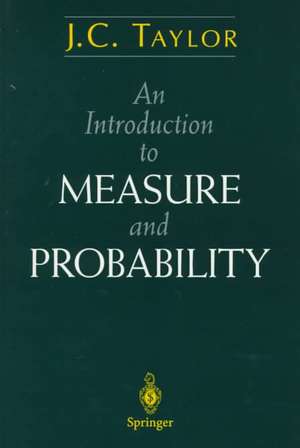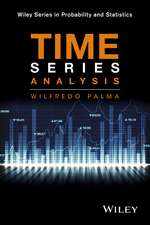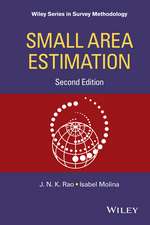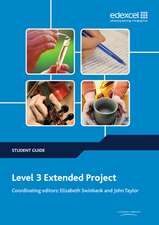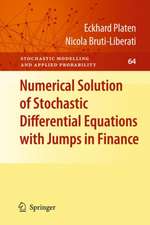An Introduction to Measure and Probability
Autor J. C. Tayloren Limba Engleză Paperback – 15 noi 1996
Preț: 500.59 lei
Preț vechi: 588.92 lei
-15% Nou
Puncte Express: 751
Preț estimativ în valută:
95.79€ • 100.26$ • 79.73£
95.79€ • 100.26$ • 79.73£
Carte tipărită la comandă
Livrare economică 31 martie-14 aprilie
Preluare comenzi: 021 569.72.76
Specificații
ISBN-13: 9780387948300
ISBN-10: 0387948309
Pagini: 324
Ilustrații: XVII, 324 p. 4 illus.
Dimensiuni: 155 x 235 x 15 mm
Greutate: 0.45 kg
Ediția:1997
Editura: Springer
Colecția Springer
Locul publicării:New York, NY, United States
ISBN-10: 0387948309
Pagini: 324
Ilustrații: XVII, 324 p. 4 illus.
Dimensiuni: 155 x 235 x 15 mm
Greutate: 0.45 kg
Ediția:1997
Editura: Springer
Colecția Springer
Locul publicării:New York, NY, United States
Public țintă
GraduateCuprins
I. Probability Spaces.- 1. Introduction to ?.- 2. What is a probability space? Motivation.- 3. Definition of a probability space.- 4. Construction of a probability from a distribution function.- 5. Additional exercises*.- II. Integration.- 1. Integration on a probability space.- 2. Lebesgue measure on ? and Lebesgue integration.- 3. The Riemann integral and the Lebesgue integral.- 4. Probability density functions.- 5. Infinite series again.- 6. Differentiation under the integral sign.- 7. Signed measures and the Radon-Nikodym theorem*.- 8. Signed measures on ? and functions of bounded variation*.- 9. Additional exercises*.- III. Independence and Product Measures.- 1. Random vectors and Borel sets in ?n.- 2. Independence.- 3. Product measures.- 4. Infinite products.- 5. Some remarks on Markov chains*.- 6. Additional exercises*.- IV. Convergence of Random Variables and Measurable Functions.- 1. Norms for random variables and measurable functions.- 2. Continuous functions and Lp*.- 3. Pointwise convergence and convergence in measure or probability.- 4. Kolmogorov’s inequality and the strong law of large numbers.- 5. Uniform integrability and truncation*.- 6. Differentiation: the Hardy—Littlewood maximal function*.- 7. Additional exercises*.- V. Conditional Expectation and an Introduction to Martingales.- 1. Conditional expectation and Hilbert space.- 2. Conditional expectation.- 3. Sufficient statistics*.- 4. Martingales.- 5. An introduction to martingale convergence.- 6. The three-series theorem and the Doob decomposition.- 7. The martingale convergence theorem.- VI. An Introduction to Weak Convergence.- 1. Motivation: empirical distributions.- 2. Weak convergence of probabilities: equivalent formulations.- 3. Weak convergence of random variables.- 4.Empirical distributions again: the Glivenko—Cantelli theorem.- 5. The characteristic function.- 6. Uniqueness and inversion of the characteristic function.- 7. The central limit theorem.- 8. Additional exercises*.- 9. Appendix*.
